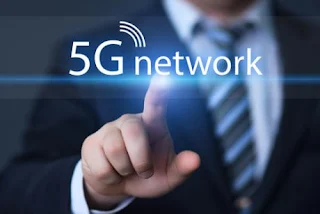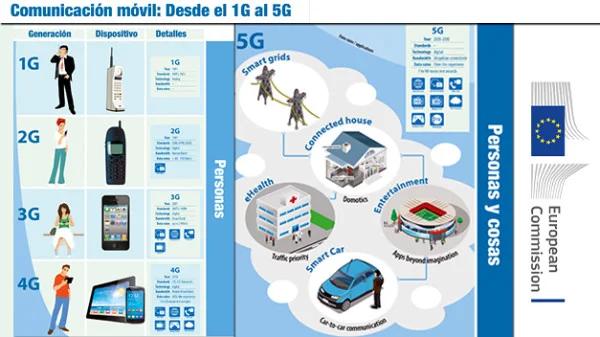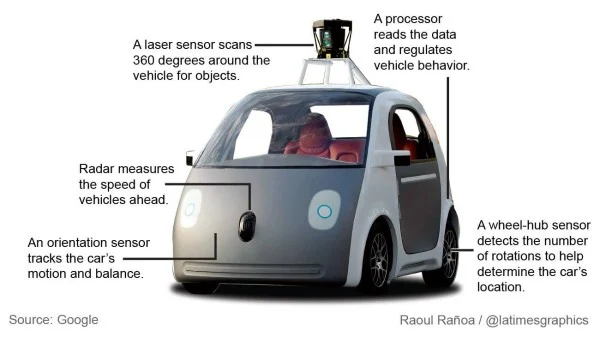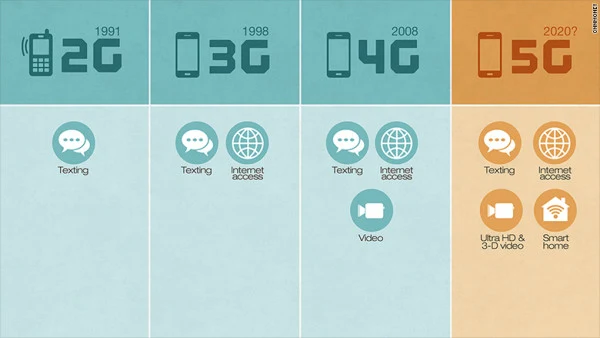The 5th Generation Mobile Networks, or 5th Generation Wireless Systems (5G), denotes the next major phase of mobile telecommunications standards beyond the current 4G/IMT-Advanced standards. Since it was announced that a 5G technology is possible in the very near future, many have been wondering how our world with the technology will look like.
Experts in the wireless industry have agreed that 5G will be ready by the end of the decade. Nokia who has been a key player in the development of the technology, recently held a preview to demonstrate how the new technology could change our day-to-day activities.
According to Nokia, every industry will be affected by the 5G technology. The company says the network speeds are as high as 10Gbps. Nokia believes 5G will be the platform enabling growth in many industries, ranging from the Information Technology industry to the car, entertainment, agriculture, and manufacturing industries.
Money.cnn.com highlights five major industries, which will be extremely affected by this new anticipated technology. The five industries have a very significant influence on our lives.
Faster Speeds
Nokia claims that it has tested a 5G connection with download speeds of 30 gigabits per second, in its laboratory. That is more than 1,000 times faster than our average 4G connection. Due to physical obstructions such as trees, buildings, distance from a cell tower, and traffic on the network, getting the same results as what Nokia recorded in its laboratory, are perhaps dubious. But that notwithstanding, we are certainly going to receive something much better than what we currently have. According to the Director of Government Standards at AT& T-Brian Daly, the 5G will be fast: 10 to 100 times faster than the current 4G. This faster speed will also allow more customers to be connected at the same time, giving the network more capacity, and making connections more reliable for mobile customers.
Video Multi-Casting
Nokia strongly believes that with 5G Network, real-time events such as sports, concerts, etc will be greatly enhanced. The video quality from such events would be in stunning 4K, about four times the resolution of HD. Viewers could even switch the camera angle, getting an instant replay directly on their Smartphones, tablets, and other devices.
Self-Driving Cars
In the United States, testing for self-driving cars has begun. The test is being powered by wireless networks. But one major problem that has emerged from the test is the amount of latency, or lag, between the car’s sensor and the data center sending information to the car.
When self-driving cars become a reality, they will have to identify an obstacle and immediately communicate that information to the data center (and receive instructions from the cloud), with virtually no latency whatsoever. Otherwise, the car would crash. One of 5G’s biggest promises is the ultra-low latency, delivering uninterrupted communication flow to driverless cars. That could dramatically improve vehicle safety and reduce congestion.
Networked Robots
Network robots will be very useful in the health and manufacturing sectors. For example, robotic surgical tools can be useful machines for doctors. The robot needs to react in real-time, just as the doctor issues a command. The same goes for robots that perform complex manufacturing commands, which need to communicate instantly with other robots on the assembly line. 5G will make all these effects. Nokia predicts that 5G’s low latency would help tremendously, allowing networked robots to perform more complicated tasks in the future as the technology is developed.
Virtual Reality
Download Full Report about 5G Mobile Networks (PDF file)









0 comments